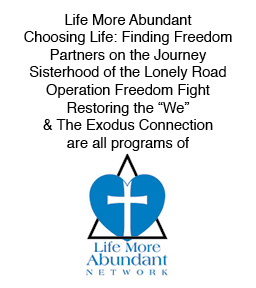Revenge is one of those secret desires.
As Christians we know somewhere deep inside that it isn’t OK but, if we’re honest about it, it does cross our minds from time to time, doesn’t it? It’s practically an automatic response, like blinking, or jerking your hand back from a hot stove, especially if we’ve been deeply hurt by someone.
WHAT THE BIBLE SAYS ABOUT IT
From time to time the Bible doesn’t appear to directly address some of our 21st century struggles. But, that isn’t true in this case. God very plainly denounces vengeance in Leviticus 19:18 when he says, “Do not seek revenge or bear a grudge against anyone among your people, but love your neighbor as yourself. I am the Lord.”
There’s little doubt about what He’s trying to say here and that he allows virtually no “wiggle room.” He says DO NOT SEEK REVENGE. End of story.
So why, then, does it still seem like a viable answer—sometimes even the best or only suitable response to the hurt or betrayal we have received?
OUR HOPE
Betrayal is an ugly thing. Few things hurt us more. The saddest part is that betrayal never comes from our enemies. It comes from friends and loved ones—the ones who promise to love us forever. These are the individuals that we have been most vulnerable with and who know us better than anyone. It’s the people we should have been able to count on who have thrust a knife into our heart and left us bleeding and alone. The pain is excruciating and we are frantic to do something to relieve it.
We hope that our revenge will:
EVEN THE SCORE
It doesn’t matter if we are 3 years old or 63, we have little tolerance for injustice. Our brain still screams “it’s not fair” and we feel duty bound to do something to remedy that. We still cling to that preschool mentality that if little Johnny steals our toy, we have every right to rip it out of his hands and conk him over the head with it. If sweet Sally bites us on the arm, we are obligated to bite her back. An “eye for an eye” is still very alive in our hearts. The problem is our reactions are usually countered by another reaction from the other person. A perpetually destructive cycle is born that will bring us further pain.
MAKE THEM PAY
We feel they “owe” us, so we become the self-appointed bill collector. I remember one wife I worked with who announced she would never divorce her husband . . . or forgive him . . . for his repeated pornography binges. She was almost proud that she was going to remind him and make him pay every day for the rest of their lives. His transgressions became a way to get the things she wanted. She believed that expensive jewelry and other extravagances were owed her because of the pain he had caused. Last time I saw her, she was still a very angry and vengeful woman.
HELP US FEEL BETTER
The anger, the frustration, the hurt is so intense that we can’t stand it. We have to find a way to get rid of it. We somehow get it in our head (often with the help of our friends) that getting back at them will alleviate some of the pain. The anticipation of revenge may, at first feel good. Studies have shown, however, that in the long run, the constant thinking about how and when actually elevates our anger and carrying it out brings little satisfaction.
SO, WHEN IS REVENGE THE RIGHT ANSWER?
Yep! You’ve got it! It’s NEVER the right answer. It doesn’t accomplish any of the things we hope it will. In fact, our attempts to “make it right” only end up hurting US more.
Confucius was aware of this long, long ago, when he said:
“Before you embark on a journey of revenge—dig two graves.”
If this is the path you choose, it will destroy you BOTH.
God has provided other tools—like grieving and forgiving— that will resolve the situation more positively. It is truly a case of the harder road being the superior road. We, the one who has been betrayed, can’t move beyond this moment without letting go of our “right” to wound the wounder. It’s OK to be angry, but it’s never OK to be cruel. You can’t fix yourself by breaking someone else.
It certainly wasn’t OK, what happened to you, but when you seek to surrender the situation and the injustice of it to God, He will mete out whatever punishment, training or love is required to fulfill his good plan for all who are involved. We are responsible only for our own thoughts and actions. He will take care of the rest.
“Search me, O God, and know my heart; try me and know my thoughts.”—Psalm 139:23
TODAY’S CHAT: What have you learned about revenge, that you could add to the conversation? Leave your story in the comment box below!



Leave A Response